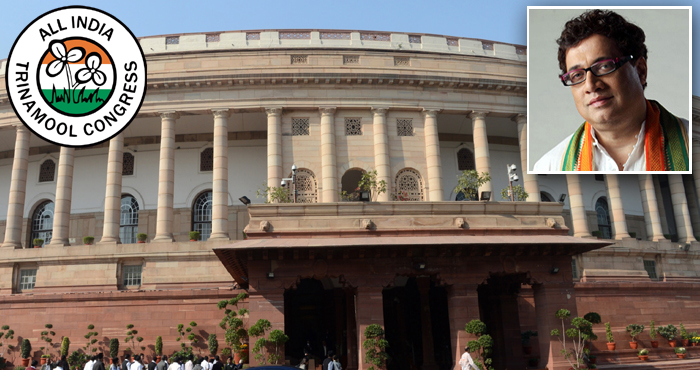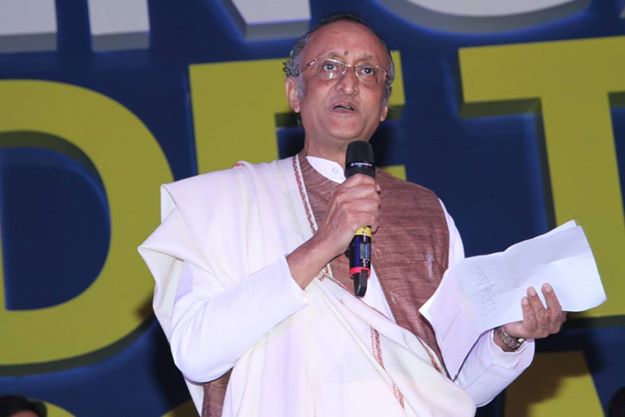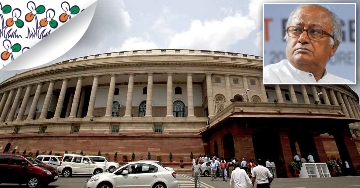On behalf of my party we have always been opposed to the Insurance Laws (Amendment) Bill, 2015. The main part of this Bill is the raising of Foreign Equity Investment cap in Insurance sector from 26% to 49%. This allowing of FDI in a big way in Insurance sector is something which is against the interest of the country and hence I oppose this.
It is very ironical that what father proposes the son disposes. Sir, in 2011 the Standing Committee of Finance in Parliament headed by Sri Yashwant Sinha, had recommended not to increase the FDI limit in the Insurance Sector. This is what is happening in BJP that senior generation prescriptions are being overruled by junior section. Yashwant Sinha’s recommendation is being totally ignored by his son, Hon’ble Minister Jayant Sinha.
Sir, it has been mentioned that this law is made in bad taste and undue haste as this Insurance Bill was all along the property of Rajya Sabha. First, the UPA II govt brought this in. Then it went to the Standing Committee on Finance. The Standing Committee on Finance gave its report in 2011. The again after the new Government came into power, in August 2014, a Select Committee on Rajya Sabha was formed and that select committee gave its report. Earlier,there were 88 amendments proposed by the Standing Committee on Finance then 11 more amendments were proposed. So all together 99 amendments were there. The Select Committee presented the report and the Bill could not be passed in the Rajya Sabha.
Sir, just imagine, on 23 December 2014, Parliament adjourned and on 26 December 2014 this Ordinance was promulgated. Is it not going behind the back of the Parliament? Who are we sending a signal to that we shall implement this FDI in Insurance no matter what Parliament thinks. This is not good.
How does the Junior Finance Minister ensure that this time it will be passed in Rajya Sabha? Anybody you might have invited will have to go back empty handed. I strongly oppose this form of legislative practice going behind the back of the Insurance sector.
Sir, let me also tell you, that the private sector let alone the FDI has not performed well in Insurance sector. It was in the wake of the Mudra scandal that LIC was nationalised during Jawaharlal Nehru’s Prime Ministership in 1957. During Mrs Gandhi’s Prime Ministership the General Insurance business was nationalised in 1973 and now in 1999 when the NDA was in power they brought the new Insurance Act which opened general insurance to the private sector. IRDA was formed at that time and they have allowed this private sector into the industry.
Now Sir, what has happened, I tell you something, compare the performance of LIC with that of the private sector. Of course this Bill does not concern LIC directly but LIC by 2014 enlisted more than 30 crore policy holders and generated more than Rs 16 lakh crore investable funds. 11 lakh LIC agents are there. LIC today commands 85% of the policy market and 75% of the total premium collected. LIC is public sector, it has performed commendably in the Insurance sector. Now if you compare LIC lapsing with private industry, more than 99% settlements of the claims and more than 99% of death claims this is the performance of LIC.
Now, the private sector Future Generali 49%, Prudential 42%, Reliance 38%, Bharati AXA 36%. This means they pay one premium and their money is forfeited by the insurance company. Now you want more private players in insurance sector? I can understand in life insurance because life insurance is a long term investment, so you can invest money in life insurance for long term in infrastructural gains. I can even understand if FDI comes into infrastructural sector, to build huge roads, ports, etc. But Sir, in GIC which is basically health insurance, motor car insurance, shop insurance against theft, these premiums are one to two years how are you going to gain if Foreign Direct Investment comes in? It gives you no special privilege. It basically involves small savings and in general insurance only a short period of one year or so is involved. So the purpose of generating long-term investment funds is not possible in the general insurance sector.
Sir, another thing, they say the enhancement of FDI limit assumes that there is a lack of funds in this sector. The assumptions have no basis in the sense that the business in the hands of high end business houses and also insurance business has no link between investment and volume of business. For instance, Bajaj Allianz which has an investment of a total capital of Rs 4800 Crore, premium income of Rs 6893 Crore, yet SBI life has premium income of Rs 10450 Crore with capital and reserves of Rs 2710 Crore. What does this prove? It means that if you have more investment it does not mean you will have more premium income. This whole logic of the Government in pacing ahead with FDI insurance in insurance sector is flawed with dangerous consequences. Because in case of FDI, they take out more money than they actually put in. they will invest something then quickly take out more money because that is their policy.
Sir, the other thing I want to mention is that LIC employees have gone on strike against this FDI in insurance. The insurance agents, their whole functioning has been taken out of law, it is put in the hands of IRDA and the work of surveyors have also been taken out of the ambit of the law. Who is this meant to help? You have only said that some big investment will come in the health sector. Sir, you can really never depend on foreign companies to really help out in health insurance sector. Mostly the insurance companies are cheating people. They say ‘we will give you cashless treatment’ but later they say that ‘your claim is not tenable’ to many people?
So Sir, may I request the Minister, not to pursue this bill. In any case it will get stuck in Rajya Sabha. So let him show the broadness of vision, let hi legislate on the insurance sector as a whole, including life insurance and let him not allow the FDI to infiltrate into this very vital sector of the economy.



